A recent UN report has unveiled a grim reality: the world’s most powerful nations have grown indifferent to human suffering, prioritizing military expenditures over addressing global hunger. The World Food Programme estimates that ending hunger by 2030 would require just $93 billion annually—less than 1% of the $21.9 trillion spent on militaries over the past decade. Yet, hunger continues to escalate, with 318 million people projected to face crisis-level hunger by 2026, double the figure from 2019. While wealthy nations enjoy food security, regions like Gaza, Sudan, the Democratic Republic of Congo, and Haiti bear the brunt of conflict-driven famine. In Gaza, despite ceasefire talks, children starve amidst Israeli blockades and bombardment. Sudan and Congo face catastrophic food shortages due to violence and displacement, while Haiti’s hunger crisis is exacerbated by gang dominance and political instability. Latin America and the Caribbean offer a glimmer of hope, with hunger declining for the second consecutive year in 2023, thanks to economic recovery and social programs. However, climate change poses a growing threat, with extreme weather events exacerbating food insecurity. The war in Ukraine has underscored the interconnectedness of global food systems, as stalled grain exports triggered price spikes and social unrest worldwide. UN agencies like the World Food Programme and the UN Human Rights Office work tirelessly to address these crises, but chronic underfunding and political inaction hinder their efforts. The UN Security Council’s failure to treat hunger as a geopolitical threat highlights the lack of political will to allocate resources effectively. Ending hunger is not just a moral imperative but a prerequisite for global peace and security. As UN Deputy Secretary-General Amina Mohammed warned, “there can be neither peace where people are starving, nor security where hunger drives conflict.” This stark reminder demands urgent action from the international community.
标签: Barbados
巴巴多斯
-
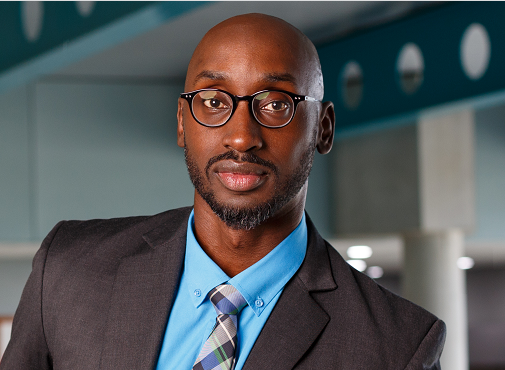
Sagicor drive marks one year of safer roads and smarter driving across the Caribbean
Sagicor General Insurance Inc. (SGI) is commemorating the first anniversary of its groundbreaking telematics mobile application, Sagicor Drive. This innovative app, designed to foster safer driving practices and reward conscientious drivers, has been making waves across the Caribbean region. To celebrate this significant milestone, SGI organized a series of pop-up events in various markets, engaging with users and highlighting the app’s numerous benefits. These events have further amplified the app’s growing popularity and garnered overwhelmingly positive feedback. Currently operational in Barbados, Trinidad and Tobago, Antigua, and Saint Lucia, Sagicor Drive has already amassed over 500 users. The app employs advanced telematics technology to analyze driving behaviors, offering users valuable insights into their habits while incentivizing safer driving through rewards such as badges, vouchers, and policy renewal discounts. Over the past year, the SGI team has rolled out several updates to enhance the app’s functionality and user experience, making it more efficient and user-friendly. Andre Barrow, Assistant Vice President of Innovation and Business Systems at Sagicor General, shared optimistic insights based on the data collected. ‘The results are very encouraging. While we haven’t yet observed a reduction in accidents attributable to the app, we are hopeful that its continued use will promote better driving habits, ultimately leading to fewer claims for our clients,’ he stated. Sagicor Drive is a cornerstone of SGI’s digital innovation strategy, leveraging cutting-edge technology to elevate client experiences, improve road safety, and support communities through data-driven solutions.
-
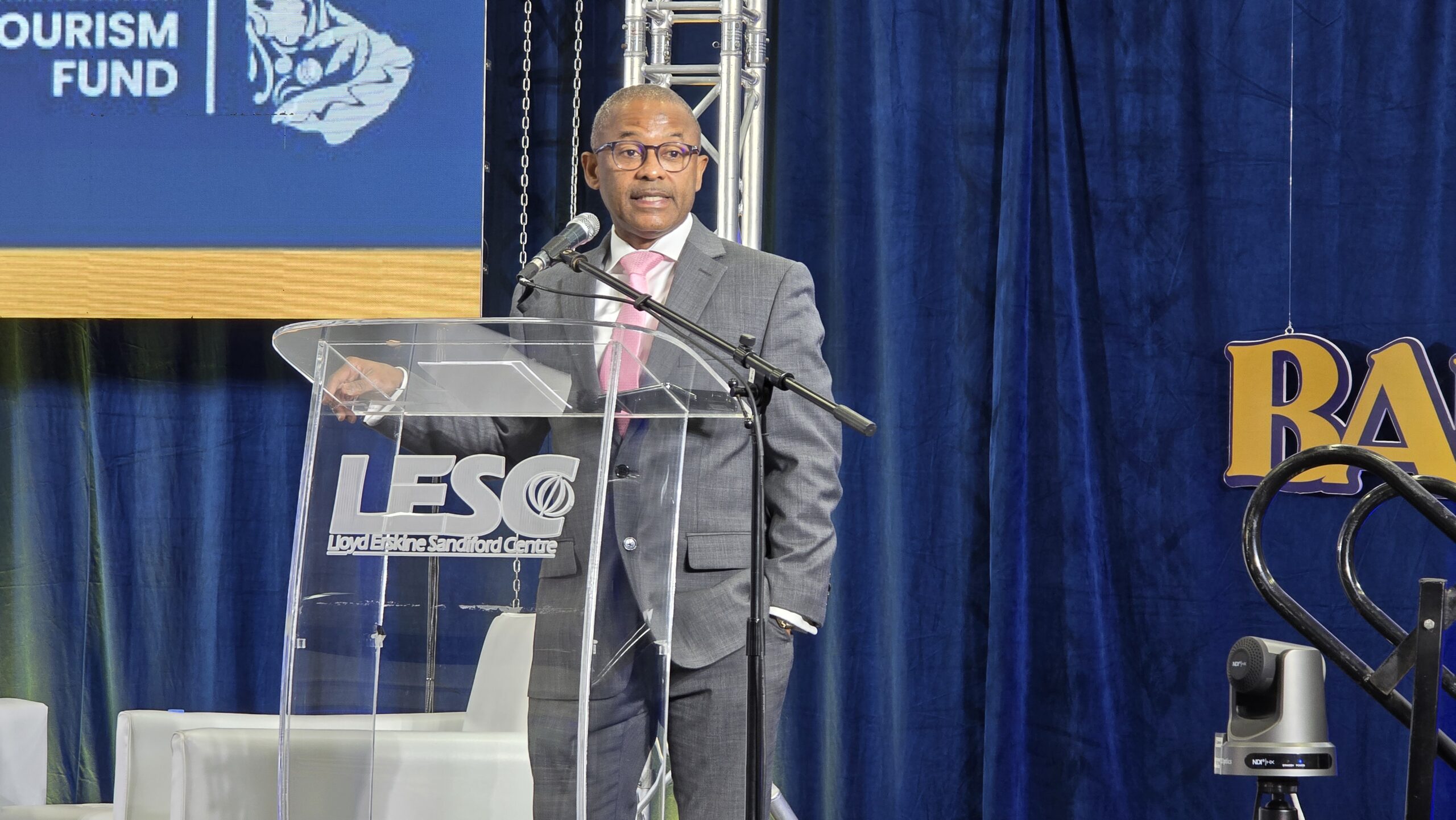
Visitors can “Dine with a Bajan”
As Barbados prepares for its peak tourist season, the Barbados Tourism Marketing Inc. (BTMI) has reintroduced its ‘Dine with a Bajan’ initiative, a community-based tourism program that invites visitors to enjoy authentic Bajan meals in the homes of local hosts. The relaunch event took place on Wednesday evening at the Cricket Legends of Barbados in Fontabelle, St. Michael, where attendees learned about the program’s details and its cultural significance. Minister of Tourism and International Transport, Ian Gooding-Edghill, highlighted the initiative’s role in showcasing Barbados’ culture and hospitality while fostering local entrepreneurship and sustainable tourism practices. He emphasized that the program strengthens the Barbados brand by highlighting the island’s most valuable asset—its people. Visitors who participate in ‘Dine with a Bajan’ will experience genuine connections with their hosts, enjoying traditional dishes and stories that reflect the true spirit of Barbadian hospitality. BTMI CEO Andrea Franklin explained that hosts underwent a rigorous application process and participated in a two-day workshop covering health and safety, service excellence, storytelling, and culinary skills. The evening also featured a preview of the dishes prepared by Chef Creig Greenidge, offering a taste of what guests can expect. The first cohort of hosts includes Maria Joseph, Patricia Mash, Marie Alleyne, and others, alongside the Cricket Legends of Barbados. Hosts like Juliette Jeffers shared their motivations for joining the program, expressing gratitude for the warm welcome they received upon relocating to Barbados. Julia Caine, General Manager of Cricket Legends of Barbados, added that guests dining at their venue will also enjoy insights into the island’s cricketing history. For updates, interested individuals can follow BTMI on social media platforms.
-

HR professionals awarded and challenged
At the HRMAB 30th Anniversary Awards Gala, held at the Sandals Resort Ballroom under the theme ‘Celebrating Excellence: Advancing People,’ Dr. Allyson Leacock issued a compelling challenge to human resource professionals. She urged them to take bold actions within the next 90 days to create a workforce that is less fearful of the future, more skilled, inclusive, and prepared for upcoming challenges. Dr. Leacock emphasized the global evolution of work, highlighting the growing demand for analytical and creative thinking, AI proficiency, and data literacy. However, she also underscored the enduring importance of human skills such as leadership, empathy, and lifelong learning. She advocated for a shift towards valuing skills and ongoing certifications over traditional degrees, job titles, and tenure, stating, ‘Skills are the new currency.’ Dr. Leacock encouraged HR professionals to develop dynamic skills taxonomies, recognize micro-credentials, and benchmark roles based on competencies rather than titles. She also stressed the need for continuous learning, supported by data from the World Economic Forum, which predicts the reskilling of many workers by 2027. Dr. Leacock called for a cultural shift from compliance to high performance and growth, emphasizing the importance of clear goals, continuous feedback, fair rewards, and visible growth pathways. She warned against the mindset of ‘everything is awesome,’ which fosters mediocrity, and reminded the audience that ‘potential is not perfection.’ Wayne Sobers, Chief Labour Officer, echoed these sentiments, highlighting the transformative impact of globalization, technological advancements, and economic changes on the workforce. He proposed targeted training, leadership development programs, ethical HR practices, and continuous learning as essential initiatives for workforce development. Sobers emphasized that effective human resource management is crucial for sustainable enterprises and national progress, aligning HRMAB’s efforts with the government’s vision for social and economic transformation. HRMAB President Tisha Peters also called for HR professionals to become strategic partners and change agents within their organizations. She urged them to leverage data, align with organizational goals, and lead proactively. Peters emphasized the importance of mentorship for preserving the profession’s legacy and announced the launch of the ‘HRMAB Arni Walters Scholarship for Human Resource Excellence’ in honor of the late HRMAB trustee. The scholarship, sponsored by the Inter-American Development Bank, will be administered by the University of the West Indies Cave Hill Campus starting in 2026.
-

Form motorcycle crime-fighting squad, police urged
The Barbados Road Safety Association (BRSA) has called on the Barbados Police Service to urgently establish specialized motorcycle squads in response to a surge in violent incidents involving illegal scrambler bikes. These bikes are increasingly associated with serious crimes and high-speed escapes, posing a significant threat to public safety. BRSA President Roland Lowe, a former police officer, emphasized the need for a trained and well-equipped team to tackle the issue effectively. Lowe highlighted the inadequacy of broad statements and stressed the necessity of officers skilled in handling dirt bikes and navigating tight, off-road spaces where illegal riders often operate. His remarks followed a recent shootout between police and armed men on motorcycles, which occurred during an attempted apprehension of off-road bikers near Westbury Cemetery. Police Commissioner Richard Boyce has announced intensified efforts to curb the use of illegal scramblers and face coverings, citing their role in facilitating quick getaways and evading detection. However, Lowe expressed skepticism, noting that similar promises in the past have yielded little tangible progress due to the lack of specialized units. He also pointed to broader recruitment challenges within the police force, arguing that attracting qualified personnel is essential for creating effective specialized teams. Lowe concluded that without addressing these underlying issues, the police will remain ill-equipped to combat the growing menace of illegal scrambler bikes and related crimes.
-
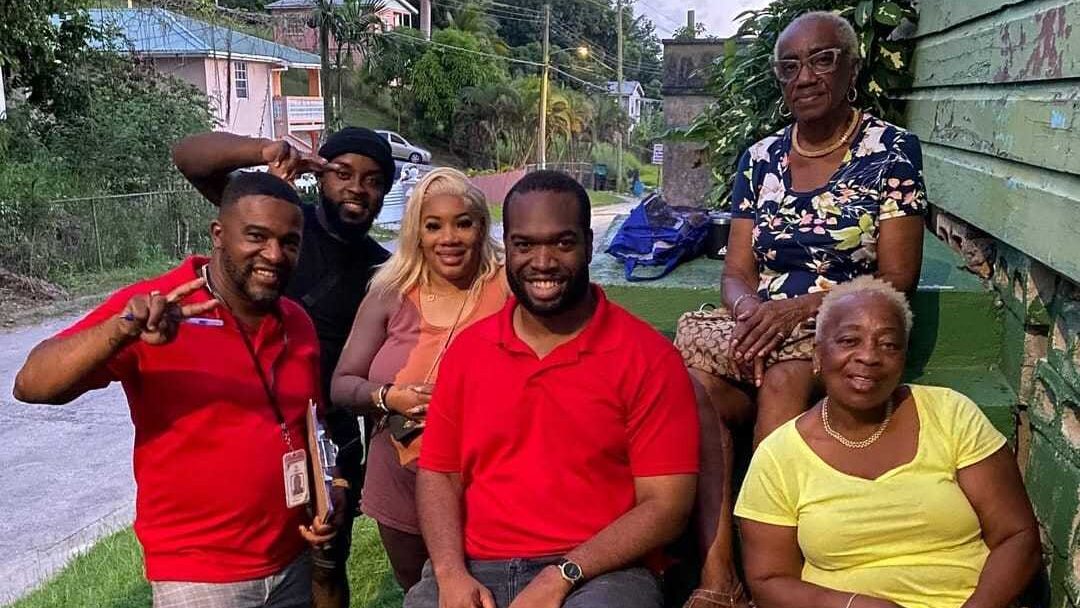
St Thomas race heats up as Chandler enters BLP candidate contest
In a significant development within Barbados’ political landscape, Dr William Chandler, a distinguished political economist, has announced his candidacy for the St Thomas constituency under the Barbados Labour Party (BLP). This move comes in the wake of the retirement of long-serving MP Cynthia Forde, who has endorsed Chandler as her successor. Dr Chandler, whose career spans international financial services and emerging markets, brings a wealth of experience and a deep sense of civic duty to the race.
-
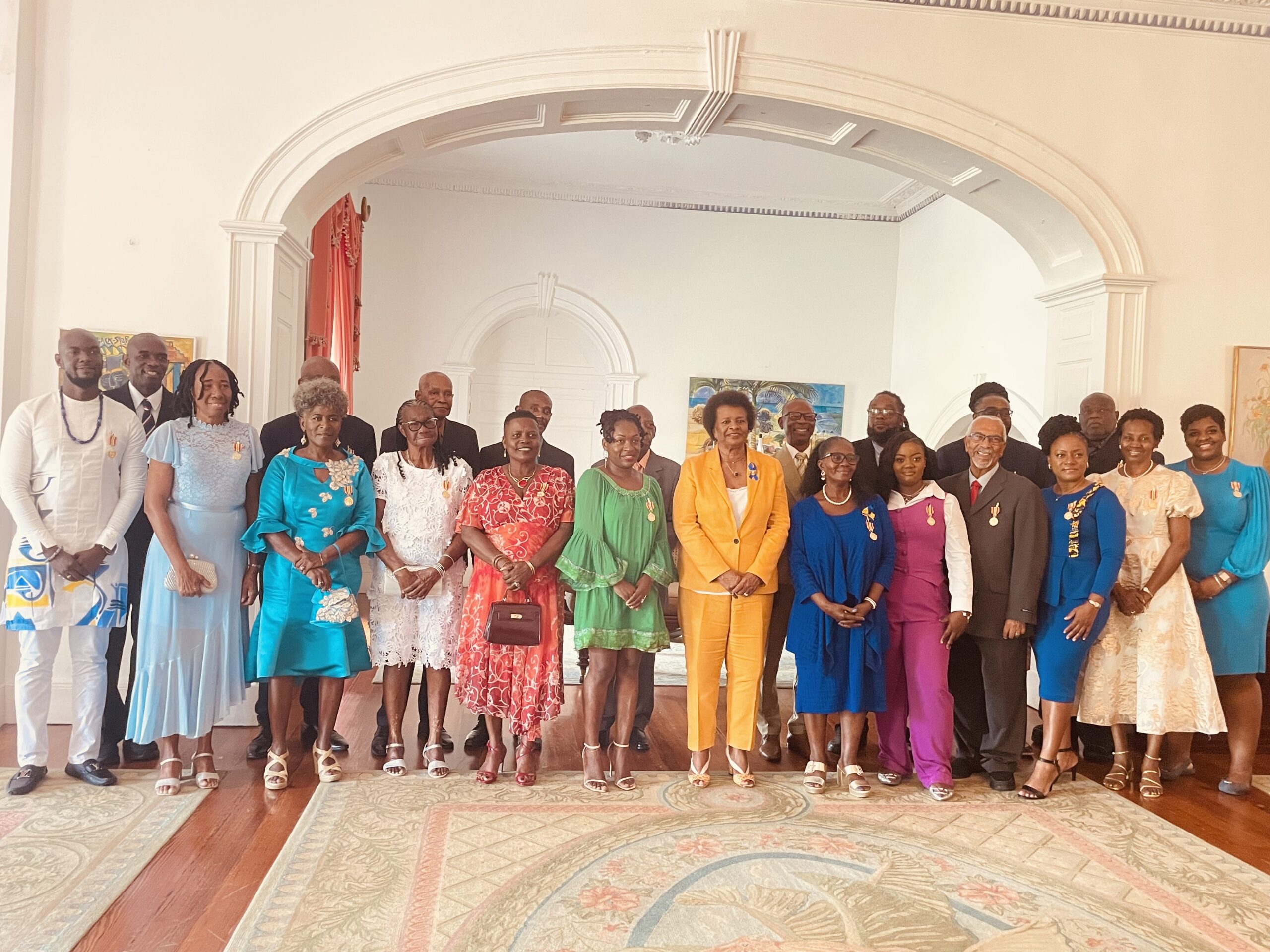
St Michael 100: unsung heroes toasted in final awards
The St Michael parish celebrated the exceptional contributions of 100 dedicated residents during the Pride of Barbados Awards ceremony at State House on Friday. Hosted by President Sandra Mason, the event honored individuals who have made significant impacts in various community initiatives. Among the awardees were Julene Kellman, recognized for her work in education and support for breast cancer patients through the Olive Branch of Hope Foundation; Dean Squires, applauded for using sports to engage youth; and Calisa Wilson, one of the youngest honorees, acknowledged for her efforts in educating children in underserved areas. The ceremony, part of the We Gatherin’ programme, highlighted the importance of community service and its role in fostering societal growth. St Michael North West MP Neil Rowe and St Michael West Central MP Ian Gooding-Edghill praised the recipients for their unwavering commitment, urging others to follow their example. The event concluded with a call to continue uplifting community development across Barbados.
-
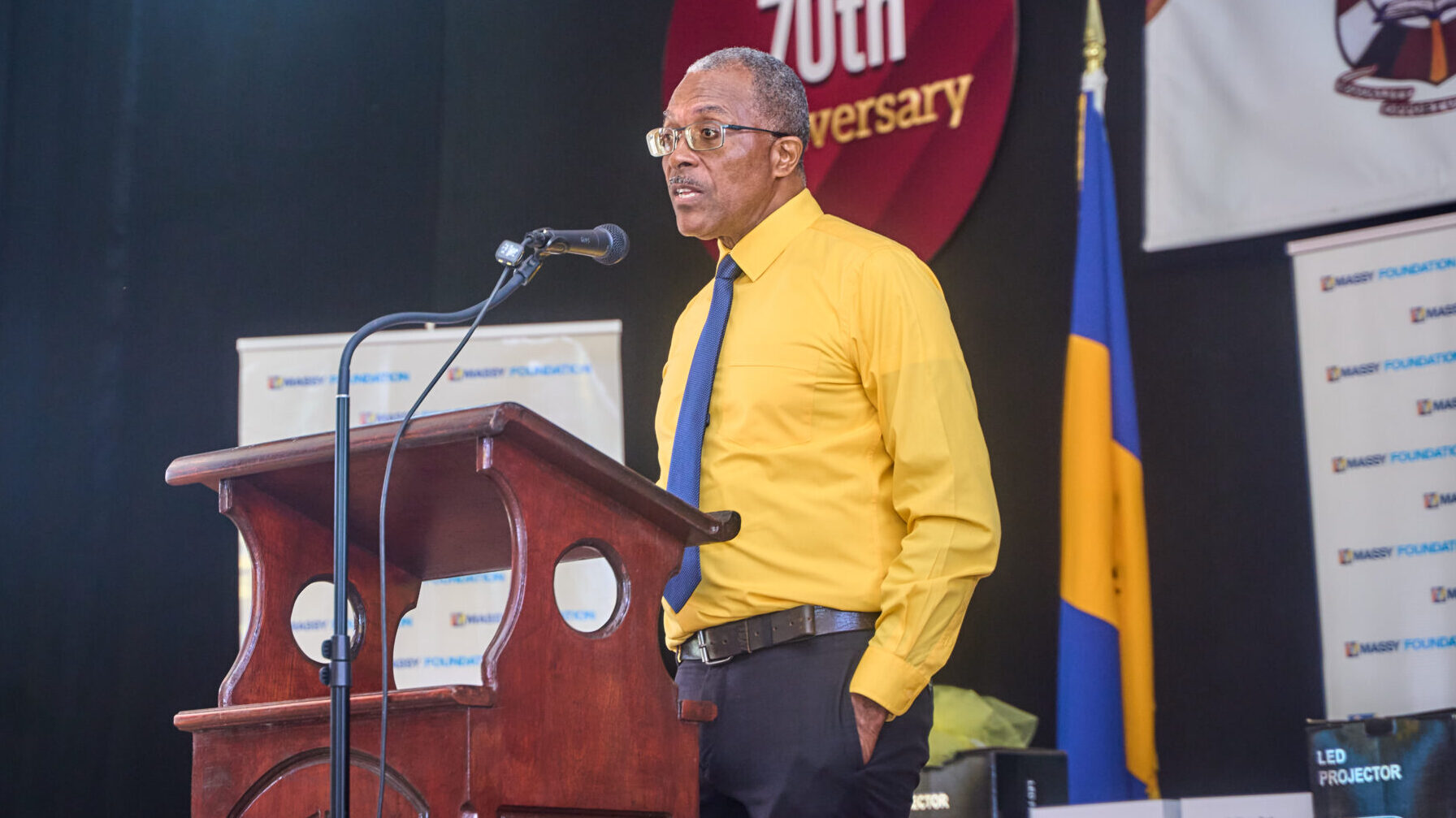
New digital tools at school ‘tackle pandemic learning loss’
In a significant step to address the educational disruptions caused by the COVID-19 pandemic, Grantley Adams Memorial Secondary School has received a set of cutting-edge digital learning kits. The donation, part of a nationwide initiative, was facilitated by the Massy Foundation (Barbados) Inc., in collaboration with Kingdom Life Ministries and Caribbean eBook Ltd. The Learnit ‘Teachnology’ Solution kits were officially handed over during a ceremony held on Friday. Natalie McDowald, Massy’s marketing manager and a member of the Massy Foundation advisory panel, emphasized that the donation symbolizes more than just the transfer of equipment. ‘This moment is a declaration of belief in the power of education, the resilience of our youth, and our shared responsibility to ensure no child is left behind,’ she stated. McDowald highlighted the profound impact of the pandemic on the education system, particularly at schools like Grantley Adams Memorial, where issues such as absenteeism, learning loss, and environmental challenges persist. Despite these obstacles, she praised the school’s leadership for choosing hope and innovation by adopting the Learnit Solution. The Massy Foundation has already donated similar kits to several other schools, including Selah Primary, Lifelong School Skills Training, Ellerton Primary, St Mark’s Primary, and Hilda Skeene Primary, with plans to extend the initiative to Half Moon Fort Primary. To date, the foundation has invested over $424,000 in the program, with Kingdom Life Ministries contributing an additional $155,000, bringing the total donation to nearly $580,000. McDowald described the Learnit Solution as a lifeline for struggling learners, offering over 190 offline, interactive applications designed to enhance learning through touch, sound, and action. Principal Andrew Skeete welcomed the donation, noting its potential to bolster the school’s remedial program and deliver more responsive, flexible, and engaging instruction.
-

Students spark bright ideas for energy independence
At the Barbados Sustainable Energy Youth Forum, held on Thursday at the Lloyd Erskine Sandiford Centre, students from across the island shared their insights on how young people can contribute to Barbados’ energy independence. As the nation nears its 59th anniversary of Independence, these young voices highlighted the importance of knowledge, innovation, and behavioral change in achieving true energy sovereignty.
Nikhyl Burnett from Christ Church Foundation School emphasized the need for education in schools to help students understand and innovate energy-efficient solutions. Elijah Gamble and Tre-Nisha Simpson from the Alleyne School suggested educating children through workshops and exposing them to experts in the field. Shavier Mayers of Grantley Adams Memorial School advocated for energy conservation by prioritizing essential usage.
Nykira Pryme from Springer Memorial School proposed reducing phone usage and unplugging chargers to save energy. Charles Waithe of Harrison College highlighted the potential of solar panels and wind turbines for energy storage and grid independence. Roshida Hamilton and Akeelah McDonald from Combermere School encouraged collaborative projects like mini ovens and turbines, spreading awareness and involving teachers and peers.
These youthful perspectives underscored the critical role of education, innovation, and community engagement in driving Barbados toward a sustainable energy future.
-
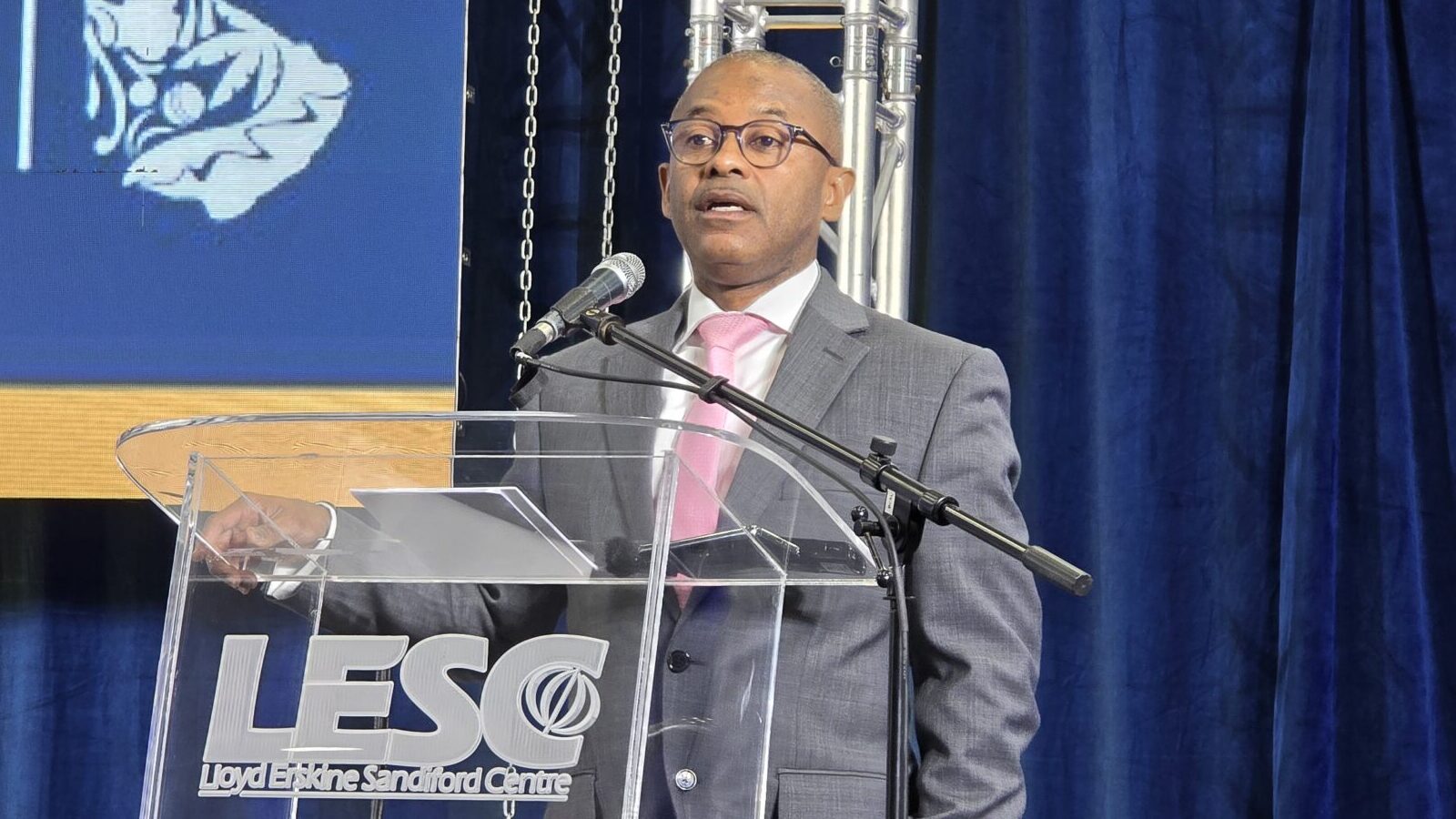
Over 1 600 new rooms ‘by 2029’ as investors back tourism biz — minister
Barbados is witnessing an unprecedented surge in its tourism sector, with over 1,600 new hotel rooms slated for completion by 2029 and earnings already skyrocketing. The island nation is aggressively enhancing its global appeal through strategic investments and innovative marketing approaches. Minister of Tourism and International Transport, Ian Gooding-Edghill, highlighted the multifaceted improvements driving this growth, including enhanced air connectivity, upgraded airport facilities, and better ground services such as taxis and car rentals. Additionally, significant upgrades in hotels and restaurants are contributing to the sector’s robust performance. Gooding-Edghill emphasized the critical role of tourism in generating foreign exchange and creating employment opportunities, stating, ‘If that is not a signal of confidence in the tourism sector, then I ask you what is.’ The financial impact is already evident, with tourism earnings increasing by $418.7 million in 2024 compared to the previous year, totaling $2.7326 billion. Looking ahead, further growth is anticipated in 2025. The minister also stressed the importance of revitalizing existing properties and tourism-related activities to maintain Barbados’ strong international brand. He called for continuous reinvestment in various tourism-led activities, from hotels to local attractions and restaurants, to ensure the island remains a top-tier destination. Andrea Franklin, CEO of the Barbados Tourism Marketing Inc. (BTMI), urged hoteliers and restaurateurs to forge deeper partnerships with local businesses, such as farmers and fisherfolk, to incorporate more local produce into their offerings. Franklin also advocated for enhanced collaboration across all source markets to sustain growth. Furthermore, Gooding-Edghill underscored the need for modernized marketing strategies leveraging artificial intelligence to boost global brand recognition. He acknowledged that while Barbados has a strong brand, there is significant room for improvement in global recognition, which will be a key focus for the BTMI moving forward.
